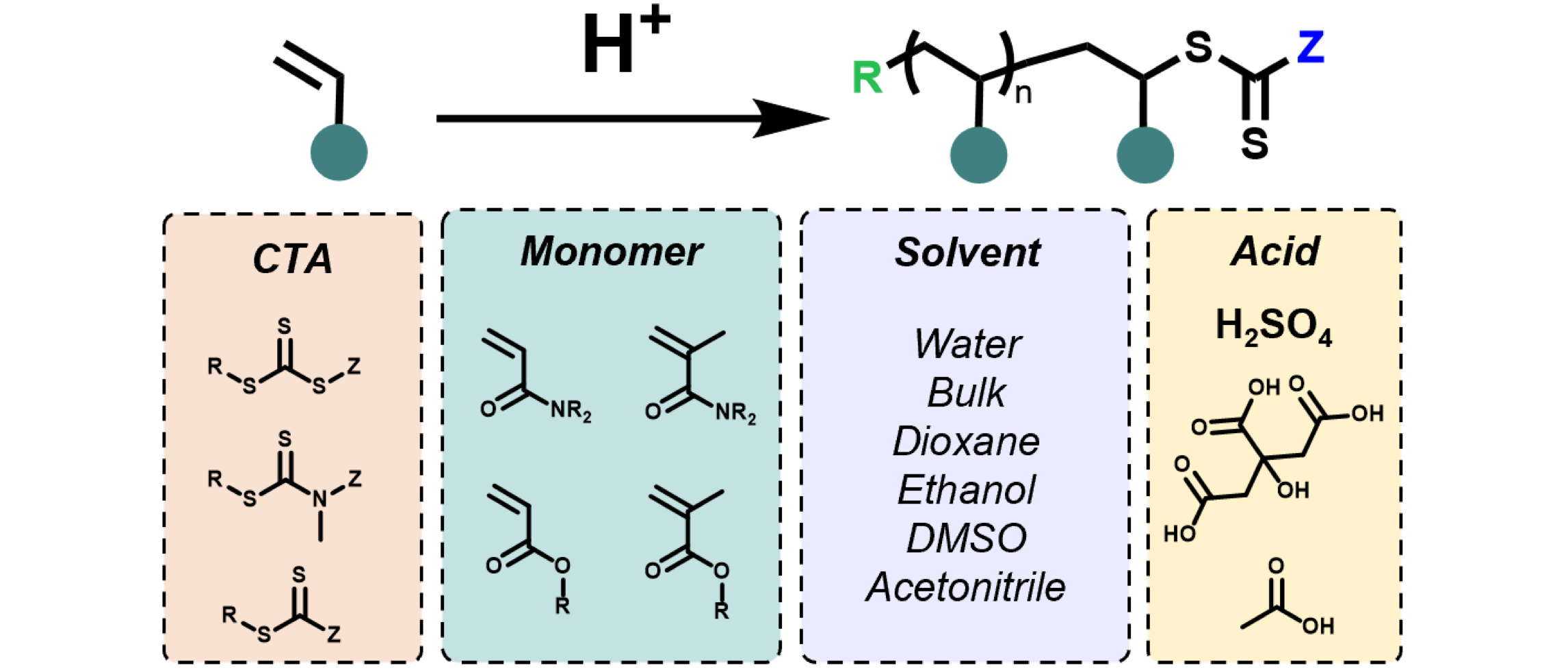Acid-Triggered Radical Polymerization of Vinyl Monomers
The Laboratory of Polymeric Materials presents a new method of initiating and accelerating radical polymerizations.

The Laboratory of Polymeric Materials reports a new method of initiating radical polymerizations via an acid-triggered pathway. Reversible addition-fragmentation chain-transfer (RAFT) polymerization is one of the most versatile and robust controlled radical polymerization methods owing to its broad material scope and high tolerance to various functionalities and impurities. However, to operate RAFT polymerization, a constant supply of radicals is required, typically via exogenous thermal radical initiators that are not only challenging to transport and store, but are also primarily responsible for termination and end-group heterogeneity. Abundant acids (e.g. sulfuric or citric acid) are shown to have a dual role initiating and accelerating polymerization, supported by DFT calculations performed by the group of Prof. Michelle Coote (Flinders University, AUS). The superiority of the acid-triggered RAFT over previous thermal approaches was demonstrated through the synthesis of homo and block copolymers with faster polymerization rates, narrower molar mass distributions and suppressed termination. The method is compatible with a wide range of vinyl monomers and solvents, and can be applied to the synthesis of well-controlled high molecular weight block copolymers. Importantly, the acid-triggered approach can also be directly applied in free radical polymerization (FRP), one of the most industrially important methods of polymer synthesis, where it allows for the synthesis of high molecular weight polymers in the absence of conventional radical initiators. This acid-triggered polymerization presents a powerful alternative to conventional thermal RAFT and FRP.
Maria-Nefeli Antonopoulou, Glen R. Jones, Asja A. Kroeger, Zhipeng Pei, Michelle L. Coote, Nghia P. Truong & Athina Anastasaki. Acid-triggered radical polymerization of vinyl monomers. Nat. Synth (2024). external pageDOI:10.1038/s44160-023-00462-9
